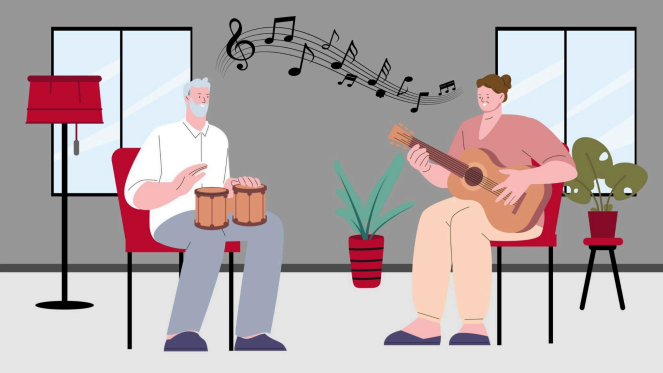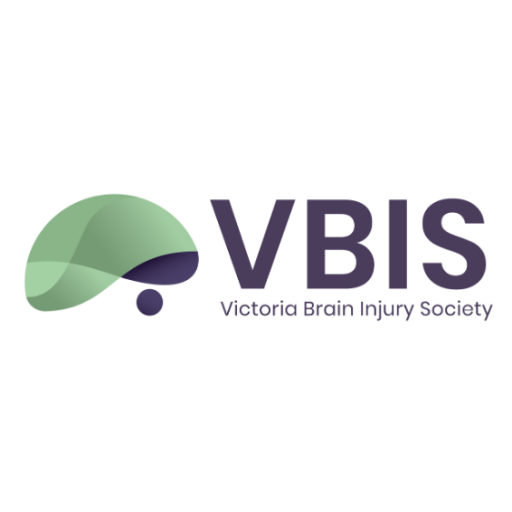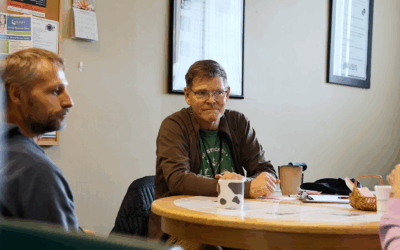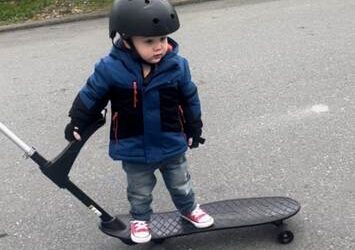By Shaylen Hardy
Traumatic brain injury (TBI) presents difficult challenges that individuals must overcome every
day. Working to manage symptoms and improve quality of life can be tiring for individuals living with
TBI. Music therapy is gaining popularity as an emerging rehabilitation method for individuals living with
TBI. Music has a unique way of engaging sensory processing systems and can even promote
neuroplasticity (Brain Injury Canada, 2023). Music can facilitate a holistic approach to TBI rehabilitation
allowing individuals access to musical therapy support groups, and improve symptoms including
enhancing cognitive functioning, improving motor skills and promoting emotional well-being. Music
therapy has the potential to provide benefits that traditional rehabilitation therapies may not. More
specifically, music therapy encourages social interactions and foster emotional connections with other
individuals with similar experiences. Additionally, music can help motor skills, provide emotional and
psychological support, and encourage motivation and engagement during the individual’s rehabilitation
journey.

Cognitive rehabilitation can be challenging for individuals as the cognitive effects of TBI can
make daily tasks very challenging. Cognition refers to the mental processes that allow the brain to
navigate and engage in the environment. The cognitive effects of brain injury are different for each
individual. Symptoms occur as a result of altered functioning of brain regions involved in memory,
planning, decision making, attention, etc. Playing music can reduce stress and allow individuals to
interact creatively with their peers while practicing communication skills (Brain Injury Canada, 2023).
Additionally, singing can promote better clarity of speech, and encourage vocabulary recall to support
memory improvements for speech (Headway, 2024). Individuals living with TBI can utilize music therapy
to better understand their symptoms and creatively engage cognitive processes to promote rehabilitation.
Music therapy can also contribute to rehabilitation of motor skills for individuals living with
TBI. As new studies are emerging, researchers are beginning to understand how motor skills can be
practiced and improved using rhythm-based activities (Alashram et al, 2019). Physical problems and
motor impairments are a common symptom of TBI. Physical barriers can be frustrating and limit one’s
ability to navigate the world around them. Working to improve mobility and physical independence can
encourage positive mental health. Music also encourages neuroplasticity in brain regions involving
auditory and motor processing (Schlaug, 2015). Interestingly, rhythm-based auditory stimulation can help
individuals reinforce timing and movements required to perform motor skills (Headway, 2024). Utilizing
music therapy to practice motor control and fine motor skills is very important for mitigating injury
during the rehabilitation process. Using rhythms to reaffirm movement patterns and refine motor skills
individuals can feel more confident and secure in their abilities. To summarize, a dance party is never a
bad idea!
One of the benefits of music therapy is that it can be done in a group setting surrounded by peers!
Music can be a powerful tool for emotional expression and can encourage emotional regulation for
individuals recovering from TBI. Music provides an outlet for the challenging emotions that follow a
brain injury. It can be difficult to stay motivated and engaged in TBI rehabilitation, especially when there
are so many new problems that arise as a consequence of TBI. Providing a safe space for social
interactions, emotional and psychological support can be done using music. Including group activities
while recovering helps individuals feel less alone in their struggles and promotes self-expression, all of
which contribute to positive mental health!
This is why Victoria Brain Injury Society (VBIS) hosts its very own music therapy sessions for
community members to confidently express themselves through music. These sessions are hosted by
music therapist Carmen Eisenhauer. For more information regarding these sessions please visit support
services on the VBIS website.
For more information see:
https://braininjurycanada.ca/en/rehabilitation/music-therapy/
https://www.headway.org.uk/about-brain-injury/individuals/brain-injury-and-me/music-after-brai
n-injury/
https://vbis.ca/creative-arts-movement/
References:
Alashram AR, Annino G, Mercuri NB. Rhythmic auditory stimulation in gait rehabilitation for
traumatic brain and spinal cord injury. J Clin Neurosci. 2019 Nov;69:287-288. doi:
10.1016/j.jocn.2019.08.080. Epub 2019 Aug 23. PMID: 31451378.
Schlaug, G. (2015). Musicians and music making as a model for the study of brain plasticity.
Progress in Brain Research, 37–55. https://doi.org/10.1016/bs.pbr.2014.11.020



